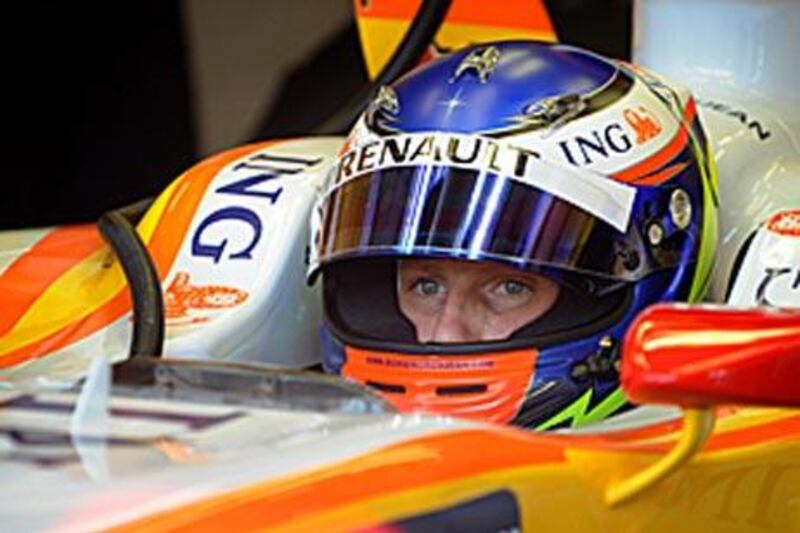Romain Grosjean, the Renault driver, claims he is indebted to Flavio Briatore, the disgraced former team principal of the French team, for handing him his break in Formula One. Briatore was banned for life by the Federation Internationale de l'Automobile (FIA) World Motor Sport Council on Monday for his role in the race-fixing incident at last year's Singapore Grand Prix that saw Nelson Piquet Jr deliberately crash his Renault car.
Grosjean, who replaced Piquet Jr after he was sacked in August, has been supported during his fledgling career by Briatore, but following the ban, now has to cut ties with his manager. "Flavio is a big character in the paddock and has been a good boss to me," said Grosjean, who will compete in Sunday's Singapore Grand Prix. "He gave me the chance to drive in Formula One so I will always be grateful to him."
But not every driver who has worked closely with Briatore is sorry to see the back of him. Johnny Herbert, who drove for him at Benetton in 1989 and 1995, believes the Italian deserves his punishment. "Flavio is a shrewd and clever businessman but the problem with him - and I know this from personal experience - is there are times he has made promises and then changed his mind," said Herbert, who won three grands prix.
"It seems Piquet was under pressure and that's never good. It was poor judgement [by Briatore] and bad for the sport. "Personally, I don't feel sorry for him. He was the representative of Renault and Formula One; he should have just said 'no,' full-stop. He's the man at the helm, and was supposed to be steering the team in a positive direction. The only option left for the FIA was to do what they did.
"I don't see how he could [contest the lifetime ban]. He was running the show, in control and when it goes wrong, out of control, he's personally culpable. It's a sad state of affairs, but he was in charge." Meanwhile, as the dust settles on the Renault saga, Mohammed ben Sulayem, the FIA's vice president for sport, said the way the case was handled supports the World Motor Sport Council's disciplinary panel procedures.
Ben Sulayem said every case provides transparency and that any meetings held in the run up to a formal hearing are platforms for discussion - and not decision-making tribunals. "No decisions are made until the Council meets, and that was the case with Renault," he said. "Council members come from all ends of the world and we are always under enormous pressure during extraordinary meetings. "A lot of thinking is done - both individually and collectively -prior to any decision made by the Council, but until the [FIA] president comes in and gives us the full report, nothing is decided.
"Discussions are part of the whole scenario; they are used to gather the information we need to make a final decision. We discuss every single problem, no matter the size. "If I have a question, I need to gather that information before making my decision. The steps have to be correct to make a considered and fair judgement." emegson@thenational.ae





